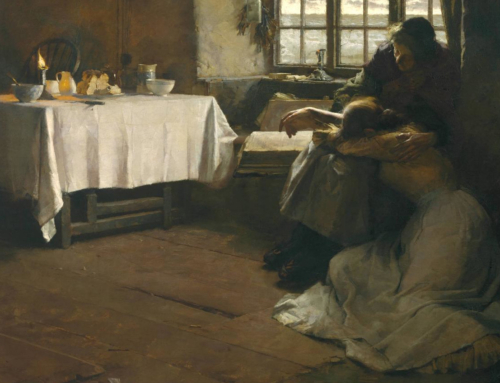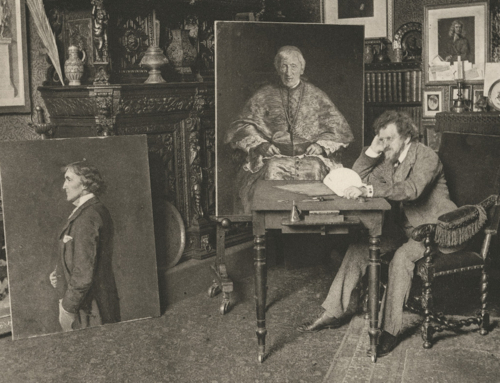The love of St. Valentine goes unrequited on Valentine’s Day. The cities are painted red with roses, lips, young love, and small chalky candies with audacious imperatives: “be true,” “hug me,” “be mine.” Yet, the true red of St. Valentine’s Day comes from the veins of Valentinus, a man who gave his life in the third century for the cause of love. The secular appropriation of his feast day capitalizes on the transfer of attention from agape (self-sacrificial love) to eros (romantic love). Martyrdom doesn’t capture Hallmark’s romantic imagination.
Martin Scorsese’s film Silence (spoiler alert) will not likely surge in the box office on February 14th, and for good reason: the movie centers on the grisly love of St. Valentine. There is a beautiful and dreadful display of the crucifixion of Japanese Christians, a scene that warrants meditation. In contrast, there is the ugly and grim scene of apostasy in which Fr. Rodrigues renounces his faith in order to save his flock from death. A fellow apostate refers to his denial as the most painful act of love. So, two loves are present, one marked by blood and one not.
In a recent article, the movie’s theological consultant claims that “forcing a person to apostatize to prevent others from being tortured or killed … was seldom used on the martyrs. Typically, in Christian history, it is the person himself (or herself) who is tortured and martyred for his or her own beliefs.” This article presents Fr. Rodrigues’s circumstances as difficult to discern and therefore requiring a new set of rules, as it were. Yet, this is misleading because of Christ’s words and the testimony of 2 Maccabees 7.
Jesus teaches us that love of neighbor follows love of God:
“Teacher, which commandment in the law is the greatest?” He said to him, “You shall love the Lord, your God, with all your heart, with all your soul, and with all your mind. This is the greatest and the first commandment. The second is like it: You shall love your neighbor as yourself. The whole law and the prophets depend on these two commandments.” (Mt 22:36–40)
There is a propriety to how we love, and the Lord doesn’t ask us to love our neighbor apart from loving Him. We readily see this in the heroism and triumph of the martyrs of recent years: Fr. Jacques Hamel, 21 Christians in Libya, and 4 Missionaries of Charity in Yemen, among others.
While it seems incongruous to say a saint watches others die for the faith, Fr. Rodrigues’s trial in Silence demands just that. His persecutors feed him a lie––that he can render good by committing evil––and regretfully, he swallows the lie. He rejects love of God for a false love of neighbor. He doesn’t heed Christ’s words:
So everyone who acknowledges me before men, I also will acknowledge before my Father who is in heaven; but whoever denies me before men, I also will deny before my Father who is in heaven. (Mt 10:32–33)
In 2 Maccabees 7, the Greek king Antiochus slaughters a Jewish mother and her seven sons for not eating pork. Killing in order, oldest to youngest, Antiochus promises the seventh son worldly riches and favor. In hope of convincing him, Antiochus asks the mother to persuade her only remaining son to abandon the faith. Instead, she says:
I beg you, my child, to look at the heaven and the earth and see everything that is in them, and recognize that God did not make them out of things that existed. And in the same way the human race came into being. Do not fear this butcher, but prove worthy of your brothers. Accept death, so that in God’s mercy I may get you back again along with your brothers. (2 Mac 7:27–29)
We see the stalwart faith and hope of this mother in the face of such unspeakable loss. Can someone love another more than a mother loves her son? The mother offers her own life in martyrdom after her sons, but she had already given herself up in the sacrifice of her seven sons.
Her sacrifice points to the sacrifice of the Blessed Virgin Mary at the foot of the Cross, who watched her Son offer Himself up for love. Bewildering and confounding are the consequences of love which the secular world wishes to domesticate. It’s the love that coursed through the veins of St. Valentine and the mother. It’s the love willing to sacrifice itself and those closest to it for God. It’s the blood red love of Jesus and Mary at the foot of the Cross.
✠
Image: Pietro Cavallini, Crucifixion







